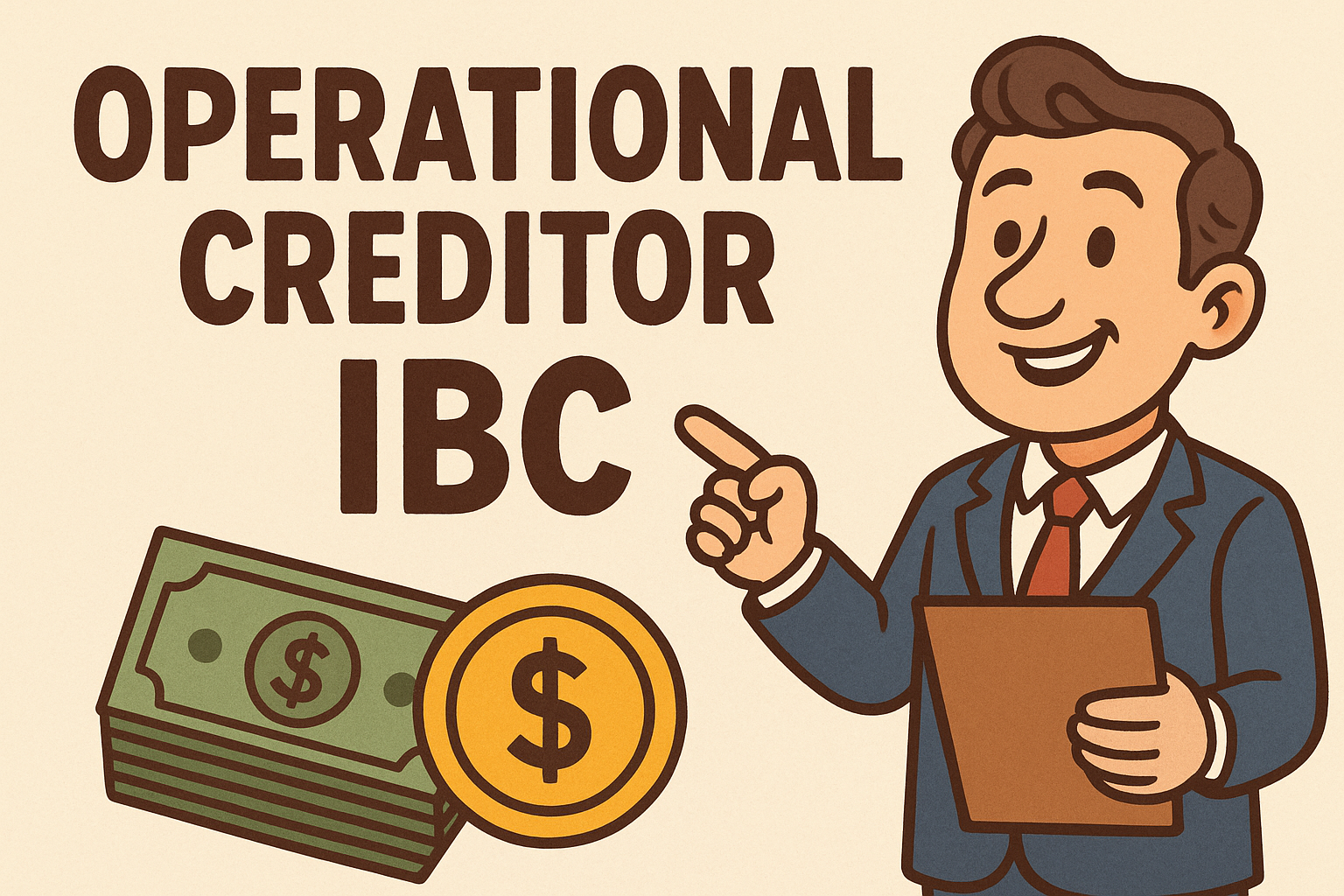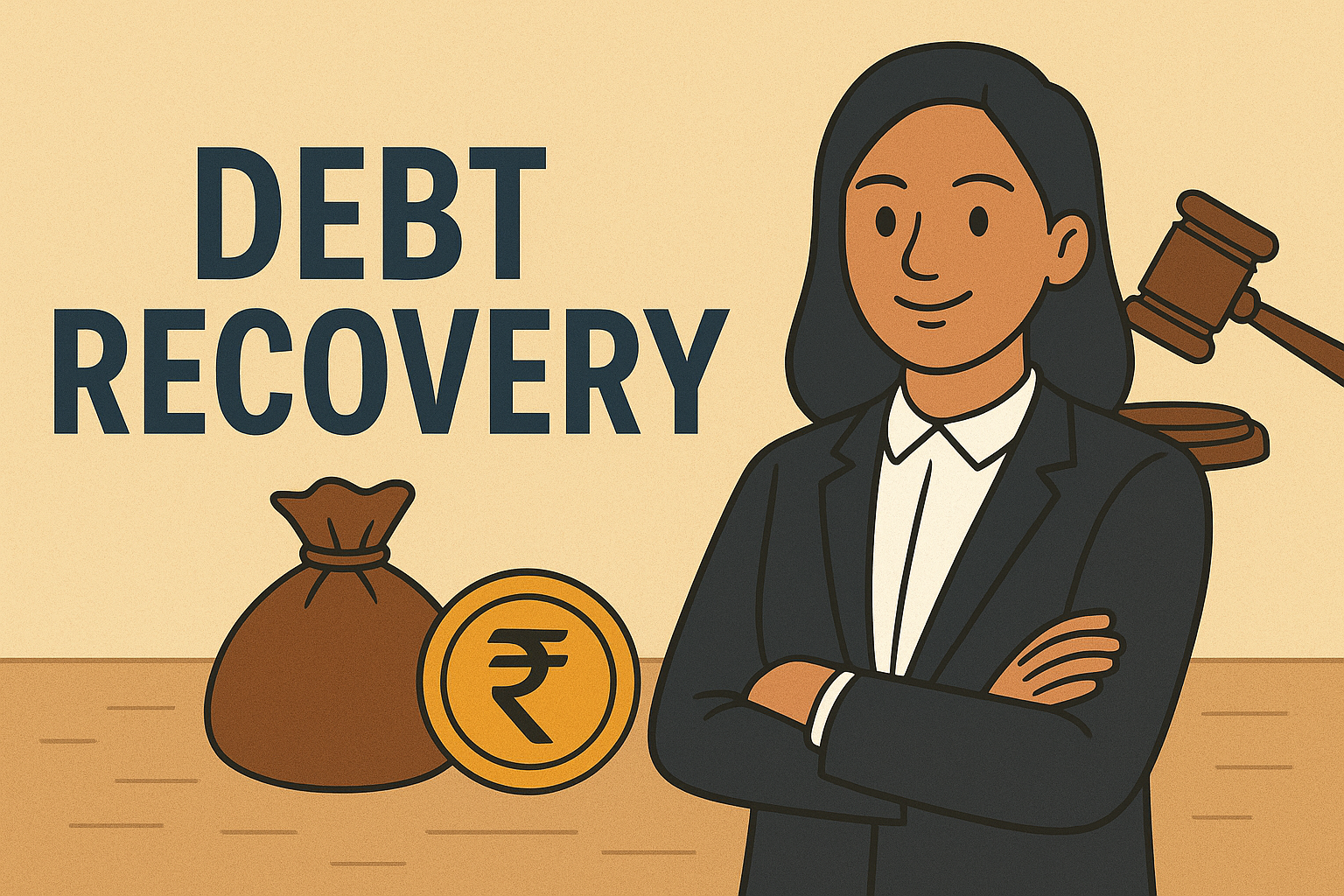Corporate Creditor in IBC Proceedings – Rights, Procedure, and Key Legal Insights
The Insolvency and Bankruptcy Code, 2016 (IBC) was enacted to consolidate and amend the laws relating to reorganization and insolvency resolution of corporate persons, partnership firms, and individuals in a time-bound manner. Among the various stakeholders under the IBC, the Corporate Creditor holds a crucial position in initiating and steering insolvency resolution proceedings against defaulting companies.
Who is a Corporate Creditor?
Under Section 5(7) of the IBC, a Corporate Creditor means any person to whom a corporate debt is owed and includes an assignee or transferee of such debt. Simply put, it refers to financial institutions, companies, or individuals to whom a debt is due from another corporate entity.
Distinction Between Financial and Operational Creditors
- Financial Creditor: A person to whom a financial debt is owed, generally arising from lending or financial transactions such as loans, debentures, or credit facilities. (Section 5(8) IBC)
- Operational Creditor: A person to whom an operational debt is owed, typically arising from supply of goods, services, or employment dues. (Section 5(20) IBC)
A Corporate Creditor may fall into either category depending on the nature of the transaction. Both have different procedural rights under the Code.
Initiating Insolvency Proceedings
A Corporate Creditor can initiate insolvency proceedings under Section 7 of the IBC before the National Company Law Tribunal (NCLT) upon occurrence of default. The key requirements include:
- Evidence of default by the corporate debtor.
- Submission of relevant documents, such as loan agreements, invoices, and financial statements.
- Filing Form 1 along with an affidavit, proof of claim, and fee.
Once the application is admitted, the NCLT declares a moratorium under Section 14, appoints an Interim Resolution Professional (IRP), and initiates the Corporate Insolvency Resolution Process (CIRP).
Role and Rights of the Corporate Creditor
- Right to be part of the Committee of Creditors (CoC) if classified as a Financial Creditor.
- Right to vote on resolution plans and major decisions during CIRP.
- Right to receive distributions as per the approved resolution plan or liquidation value under Section 53.
- Right to challenge admission, rejection, or approval orders before the NCLAT and Supreme Court.
Key Judicial Precedents
- Innoventive Industries Ltd. v. ICICI Bank (2018) 1 SCC 407 – The Supreme Court clarified that once a default is established, the NCLT must admit the petition under Section 7.
- Swiss Ribbons Pvt. Ltd. v. Union of India (2019) 4 SCC 17 – Upheld the constitutional validity of the IBC and recognized the superior role of financial creditors in the CoC.
- Phoenix ARC Pvt. Ltd. v. Spade Financial Services Ltd. (2021) 3 SCC 475 – Defined the distinction between genuine financial creditors and those with collusive arrangements.
Practical Challenges for Corporate Creditors
- Delays in admission due to documentation and procedural scrutiny.
- Difficulty in obtaining repayment during moratorium.
- Complexity in valuation and distribution under liquidation.
Conclusion
The IBC has strengthened the position of Corporate Creditors by providing a structured and time-bound mechanism for debt recovery. However, creditors must act diligently by maintaining proper documentation, monitoring defaults, and initiating proceedings promptly. Sound legal guidance is crucial for successful initiation and participation in the insolvency process.
Disclaimer: This article is for general information and educational purposes only. It does not constitute legal advice. For case-specific legal consultation, please contact a qualified insolvency professional or advocate.



